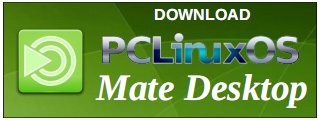| Previous
Page |
PCLinuxOS
Magazine |
PCLinuxOS |
Article List |
Disclaimer |
Next Page |
From The Chief Editor's Desk |
|
If it weren't for the events 27 years ago, on August 25, 1991, we might all still be running Windows. How's that for a horrific thought? On that date, Linus Torvalds released Linux to the world. Look around. Witness how much Linux has grown since that initial release. Linux is everywhere. Android phones and tablets can thank Linux, since they run a version of the Linux kernel. Automotive electronics are using Linux. Many TV and DVD/Blu-Ray players use Linux for their user interfaces. Ebook readers are mostly Linux based. Linux serves as the backbone for many IoT devices. Linux runs the vast majority of supercomputers around the world. Linux is everywhere. Without it, where would we be? There aren't a whole lot of other choices. Besides Windows, would we run Mac OS? Probably not, with Apple's closed ecosystem. We could run one of the Unix based operating systems. But Unix seems more divided than Linux. Or, would something altogether different step up to fill the void left by the absence of Linux? I shudder at the thought.  Would Linux's replacement be something we've already seen? AmigaOS, maybe? OS/2? Or would it be something none of us could imagine because it doesn't even exist? Would it embrace open source software as we've come to know it? Linux is special in many ways, and not just because we all (me and all you readers) use it day in and day out. Linux users are special, and are not just your average computer user. Everyone and anyone who desires to do so can view and study the source code. Users can alter that source code pretty much as they see fit. Users can contribute code to customize, improve and extend Linux. After years of literally and totally being ignored, computer hardware manufacturers are now supporting Linux with device drivers to make that hardware work/run under Linux. I've noticed a HUGE difference since I first started using Linux regularly about a dozen years ago. Back then, there were a lot of homegrown, roll-your-own device drivers by the Linux community. Very few hardware vendors thought that the “Linux market” was big enough to warrant the time, energy and effort put into development of device drivers for our beloved operating system. Thankfully, Linux gained a market share that, by some estimates, exceeds that of the Mac OS. All of a sudden, and thankfully, the hardware vendors saw Linux users as too large of a market to ignore. Within a one or two year period, we saw tons of hardware vendors jumping on the Linux bandwagon, offering up driver support for their products. Boy, how things have changed. Every major wireless chipset is backed by drivers from their vendors. Go out and look at printers. Virtually every big name printer manufacturer not only offers drivers for Linux, but they prominently and proudly display that support either on the box that the printer comes in, or in the device specifications for the printer. Down the line of computer accessories and hardware, Linux support has blossomed and proliferated. No longer does Linux languish in obscurity. Ten years ago, it was rare for me to find anyone who knew of -- or even heard of -- Linux. Today, I find a lot of people who at least know what I'm talking about, even if they are not users themselves. With virtually no advertising budget, there are quite a few factors the helped to pull Linux out of the shadows. Certainly, the increased market share led to much more of an increase by word-of-mouth. Support from hardware manufacturers certainly has helped, but with that one, it's kind of like the debate about which came first, the chicken or the egg. Did the growth of the Linux market spur the support, or did the support help spur the growth? Certainly, Microsoft putting out a flop version of Windows every other release cycle, something they have a long, long history of doing, helped drive new users to Linux. With every flop version of Windows released, the Linux community seems to see a new flood of refugees, many of whom never realized that there was an alternative. So, Happy Birthday, Linux! You've come a long way, baby! Your future is bright for continued growth. Until next month, I bid you peace, happiness, serenity and prosperity. |

